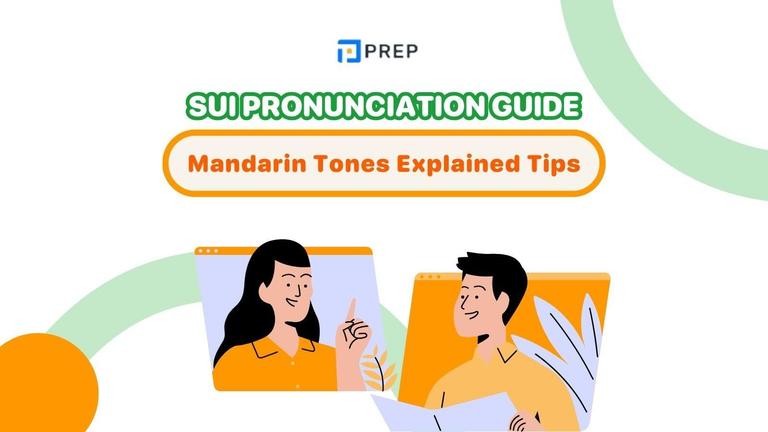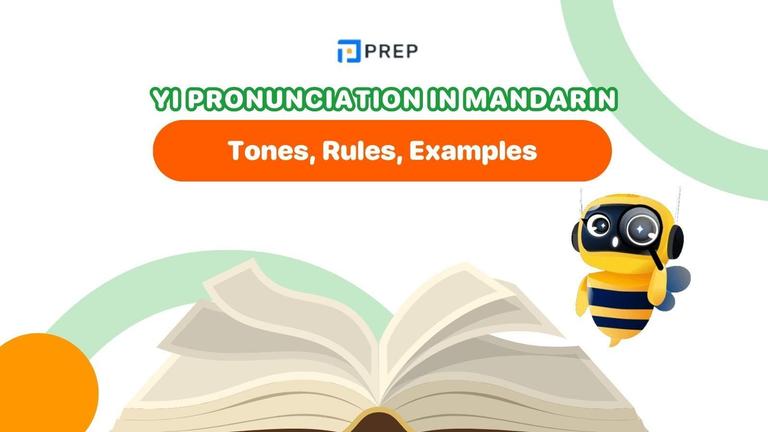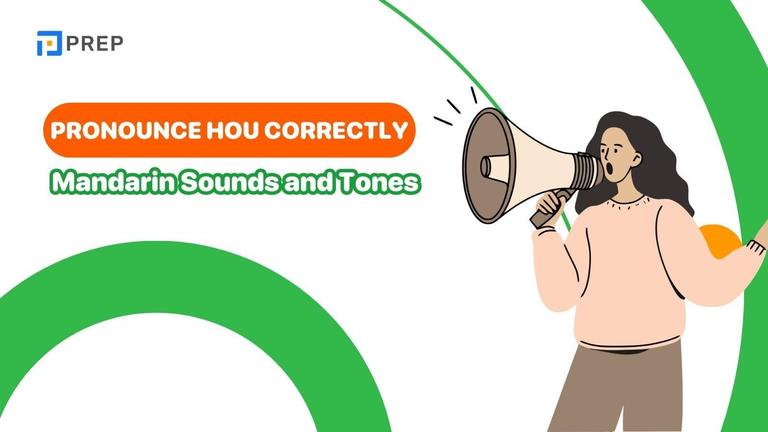Differences between 2 words Thanks and Thank you in English
The selection between "thanks or thank you" may appear straightforward, but this choice plays a crucial role in shaping how others view your level of professionalism and authenticity across both personal relationships and professional environments.
- I. Understanding "Thank You"
- II. Understanding "Thanks"
- III. Typical Applications of Thanks and Thank You
- IV. Key Distinctions Between Thanks and Thank You
- V. Important Guidelines for Using Thanks and Thank You
- VI. Alternative Ways to Express Thanks or Thank You
- VII. Practice Exercise to Distinguish Thanks and Thank You

I. Understanding "Thank You"
The Cambridge Dictionary defines "thank you" /ˈθæŋk juː/ as serving dual grammatical roles: as an interjection and as a noun.
-
When functioning as an interjection, it conveys appreciation to someone—for instance, "Thank you for coming!"
-
In its noun form, it represents the act of expressing gratitude—"A big thank you to everyone who helped."

The foundational verb "thank" means "to show appreciation to someone," as demonstrated in "I would like to thank Jennie for her generosity."
From a grammatical perspective, saying "thank you" creates a complete sentence structure following the subject-verb-object framework: "I" serves as the understood subject, "thank" acts as the transitive verb, and "you" becomes the object. This construction provides the phrase with enhanced formality and grammatical substance, making it appropriate for respectful or earnest communication. Additionally, it accommodates natural modifiers such as "thank you very much" or "thank you so kindly," maintaining the expression's grammatical completeness and creating a more meaningful and intentional tone.
Common structure: Thank you for (doing) something
Example: Dear Mom, thank you for the lovely dress you sent me for Christmas.
Note: In English, we typically use "Thank you," "Thank you so much," etc., instead of "I thank you" in everyday conversation.
II. Understanding "Thanks"
The Cambridge Dictionary describes "thanks" /θæŋks/ as functioning both as an interjection and as a plural noun.
- As an interjection, it serves to show gratitude—"Thanks a lot for the coffee!"
- As a noun, it represents expressions of appreciation—"My thanks to all of you for your help."

In contrast to "thank you," the term "thanks" works as a plural noun, operating much like other gratitude expressions such as "appreciation" or "regards." When you give your "thanks," you're essentially providing someone with your gratitude as a concrete offering, which clarifies why we use "thanks for" instead of "thanks to" when showing appreciation for particular actions or gifts. This grammatical difference enables "thanks" to be enhanced with adjectives ("many thanks," "heartfelt thanks") and to function as a sentence subject ("Thanks are in order"), demonstrating its adaptability while maintaining its primary purpose of expressing gratitude.
Common structure: Thanks for (doing) something
Example: Thanks for lending me the money.
Words and phrases associated with Thanks:
|
Words and phrases that go with Thanks |
Example |
|
Thanks to |
Thanks to the doctor's dedicated care, Jack is now fit and well. |
|
Express your thanks |
I would like to express my sincere thanks for your assistance. |
|
Offer/ extend your thanks to somebody |
I want to extend my heartfelt thanks to everyone who supports me. |
|
Give thanks |
On this special occasion, I want to give thanks to my teacher. |
|
Thanks go to somebody |
The success of the project is a result of the hard work of the team; thanks go to each and every member. |
|
Grateful / sincere/ heartfelt thanks |
My sincere thanks for your kindness and generosity. |
|
Special thanks |
A special thanks to our sponsors whose contributions made this event a great success. |
|
Many thanks |
Many thanks to everyone who participated in making this memorable event. |
|
Thanks a million |
I want to say thanks a million for your support during this challenging time. |
|
A letter of thanks |
I am writing this letter of thanks to express my appreciation for Jack's invaluable assistance. |
III. Typical Applications of Thanks and Thank You
Join PREP to examine the standard uses of "thanks and thank you" with detailed examples below!
|
Usage |
Thank You |
Thanks |
|
Responding politely to a question, greeting, or compliment |
A: How are you today? B: I’m fine, thank you. A: You look great today. B: Thank you! |
A: You did a great job. B: Thanks! |
|
Accepting or refusing an invitation or offer |
A: Would you like some tea? B: No, thank you. |
A: Want some chips? B: Yes, please. Thanks. |
|
Expressing gratitude for a helpful action |
A: I’ll print that for you. B: Thank you. |
A: I sent the file already. B: Thanks! |
|
Receiving something politely |
A: Here’s your change. B: Thank you. |
A: Here’s your pen. B: Thanks. |
|
Used in formal/public contexts (Only for "thank you") |
Thank you very much for your support on the program. |
✘ (Not used in formal speeches) |
|
Used in informal situations (Only for "thanks") |
✘ (Less common in casual tone) |
A: Coffee’s on the desk. B: Thanks! |
IV. Key Distinctions Between Thanks and Thank You
While both expressions communicate "gratitude," several important differences exist between "thanks and thank you." We will examine these distinctions below when comparing "thanks vs thank you"!

|
Thank you |
Thanks |
|
|
Usage |
|
"Thanks" is more commonly used in informal situations, such as daily communication and with close acquaintances. |
|
Example |
Thank you for inviting me. |
Thanks for coming. |
|
V. Important Guidelines for Using Thanks and Thank You
"Thanks or thank you" are fundamental communication expressions, yet some individuals still incorrectly apply the structure of these phrases. Keep these important points in mind to prevent misusing "thanks or thank you" in your English communication:
-
Only use "Thank you" or the pattern "Thanks + person's name" when expressing gratitude to someone. DO NOT USE "Thanks you, Thanks you John..."
-
Only use "Thanks a lot." DO NOT USE "Thank you a lot."
-
Only use "Many thanks." DO NOT USE "Many thank you."
-
Only use "Thank God." DO NOT USE "Thanks God."
VI. Alternative Ways to Express Thanks or Thank You
Beyond the standard expressions of gratitude, English offers numerous alternatives that allow you to vary your appreciation while matching different levels of formality and relationship contexts when choosing between "thanks or thank you."
|
Alternative Expression (Pronunciation) |
Definition |
Example |
|
Many thanks /ˈmeni θæŋks/ |
expressing gratitude using the plural noun form with emphasis |
Many thanks for your quick response to my email |
|
Thank you so much /θæŋk juː səʊ mʌtʃ/ |
intensified form of gratitude showing stronger appreciation |
Thank you so much for staying late to help me |
|
Thanks a lot /θæŋks ə lɒt/ |
informal expression showing considerable appreciation |
Thanks a lot for lending me your car |
|
Much appreciated /mʌtʃ əˈpriːʃieɪtɪd/ |
formal way of expressing that something is valued highly |
Your assistance with this matter is much appreciated |
|
Appreciate it /əˈpriːʃieɪt ɪt/ |
casual way of expressing gratitude using a verb form |
I really appreciate it when you cover for me |
|
Grateful /ˈɡreɪtfl/ |
adjective expressing thankfulness for something received |
I'm grateful for all your support during this project |
|
Cheers /tʃɪəz/ |
British informal expression used to thank someone |
Cheers for helping me move the furniture |
|
Thanks a bunch /θæŋks ə bʌntʃ/ |
informal, friendly way of expressing gratitude |
Thanks a bunch for remembering my birthday |
|
Thank you kindly /θæŋk juː ˈkaɪndli/ |
polite, slightly formal expression adding courtesy |
Thank you kindly for your patience with my questions |
|
Thanks so much /θæŋks səʊ mʌtʃ/ |
informal intensified gratitude expression |
Thanks so much for picking up my prescription |
VII. Practice Exercise to Distinguish Thanks and Thank You
To better understand the difference between "thanks or thank you," complete this practice exercise below when deciding between "thank or thanks"!
1. Exercise: Find and correct errors
-
Thank you so much, I really appreciate your help, John!
-
Thanks you for coming all this way.
-
Thank you so kindly for the warm welcome.
-
A big thanks you to the entire team for their support.
-
Thanks a ton for everything you’ve done!
-
Thank so much for your thoughtful gift.
-
Thanks very much for being here.
-
Many thanks you for your patience.
-
I just wanted to thank you for your kindness.
-
We deeply thank to our families for their support.
2. Answer Key
-
✅ Correct
-
Thanks you → Thank you
-
✅ Correct
-
Thanks you → Thank you
-
✅ Correct
-
Thank → Thanks
-
✅ Correct
-
Thanks you → Thanks
-
✅ Correct
-
Thank to → Thank
The decision between "thanks or thank you" ultimately demonstrates your grasp of situational context, interpersonal relationships, and communication objectives, enabling you to convey appreciation with accuracy and effectiveness. By becoming proficient with these essential expressions and their proper usage when choosing between "thanks or thank," you showcase linguistic competence and cultural sensitivity that sets apart skilled communicators, ensuring your gratitude consistently achieves its intended impact while fostering stronger relationships through careful word selection involving "thanks or thank you."

Hi I'm Chloe, and I am currently serving as an Product Content Administrator at Prep Education. With over five years of experience in independent online IELTS study and exam preparation, I am confident in my ability to support learners in achieving their highest possible scores.
Comment
Premium content
View allPersonalized roadmap
Most read












